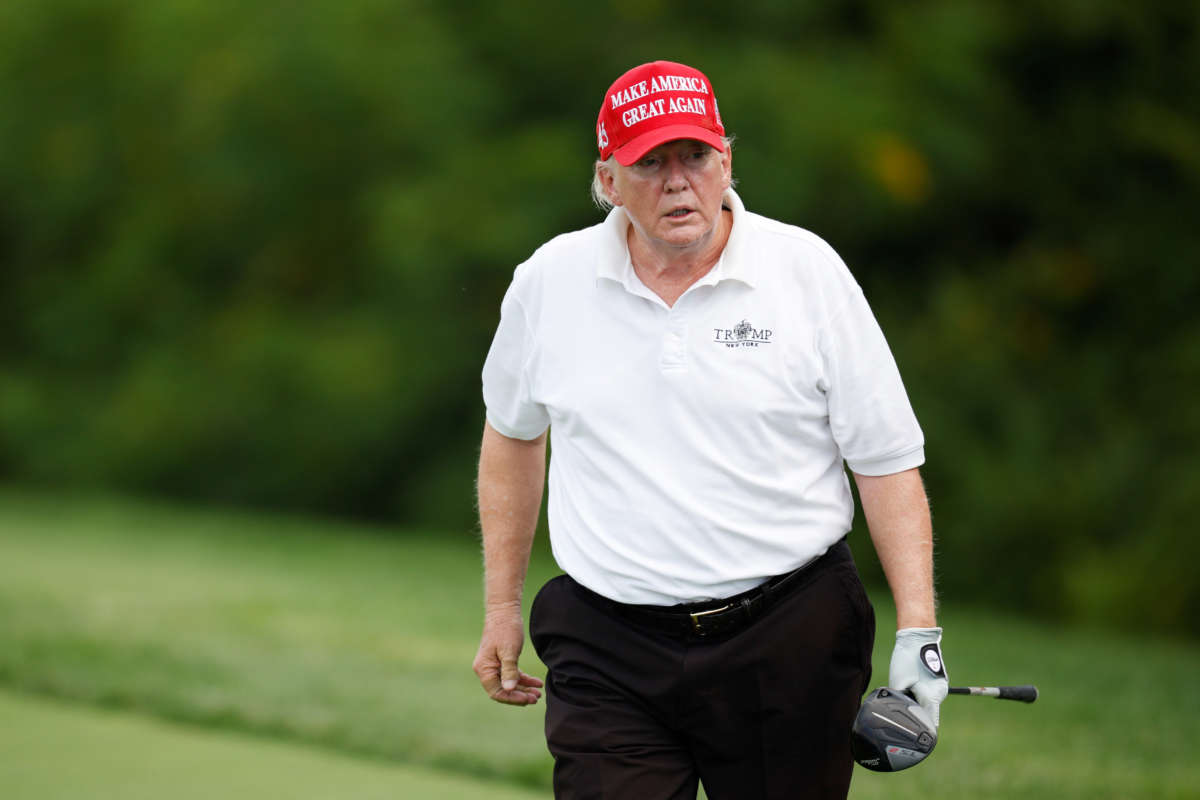New reporting indicates that the National Archives and Records Administration (NARA) had requested that Donald Trump return government documents even while he was still in office — debunking the former president’s claims that the execution of a search warrant on his Mar-a-Lago property to retrieve the documents earlier this month was unnecessary.
An email from NARA chief counsel Gary Stern in May of 2021 that was recently made public shows that he and other agency officials — along with Pat Cipollone, the White House counsel at the time — had requested that Trump return the documents during the final days of his administration.
While in office, Trump regularly took government documents to the residence wing of the White House, where they would be stacked on top of each other and rarely returned.
The email to Trump lawyers in May demonstrates that the agency was anxious to get the documents back nearly 100 days after Trump left the White House.
“We know things are very chaotic, as they always are in the course of a one-term transition…But it is absolutely necessary that we obtain and account for all presidential records,” wrote Stern, who has served as chief counsel of NARA since 1998.
According to The Washington Post, the agency continued to press Trump advisers through fall of 2021 to get him to send the documents back. After the agency threatened to involve Congress in the matter, Trump agreed to return some of the documents in January of 2022; NARA officials then retrieved fifteen boxes from Mar-a-Lago.
But not all of the documents were returned. After NARA discovered that some of the documents they had retrieved were classified, the Department of Justice (DOJ) subpoenaed Trump to return more classified documents in June.
As part of that subpoena, Trump was required to attest that he had returned all classified material, which one of his lawyers did on his behalf. But after an informer — and surveillance footage from Mar-a-Lago — alerted the DOJ to the fact that more classified material was being kept at the estate, the FBI executed a search warrant in early August to retrieve the missing documents.
The new reporting from The Washington Post contradicts Trump’s claim that he was “working and cooperating with the relevant government agencies” prior to the FBI search at Mar-a-Lago.
More than 300 classified documents have been removed from Mar-a-Lago since the start of the year. Some of the documents include information relating to the FBI, the CIA and the National Security Agency. It’s also possible that some of the documents contain information about nuclear weapons.
The portions of the DOJ warrant that have been made public so far indicate that the department is looking into possible violations of the Espionage Act, a law used to prosecute individuals who mishandle government information to the detriment of U.S. interests abroad. The law is most often used to prosecute whistleblowers and antiwar activists.
In a legal filing his lawyers submitted earlier this week, Trump demanded that the documents be returned to him, citing his supposed “executive privilege.”
“If he’s acknowledging that he’s in possession of documents that would have any colorable claim of executive privilege, those are by definition presidential records and belong at the National Archives,” said Asha Rangappa, a former FBI agent and former associate dean at Yale Law School.
Join us in defending the truth before it’s too late
The future of independent journalism is uncertain, and the consequences of losing it are too grave to ignore. To ensure Truthout remains safe, strong, and free, we need to raise $31,000 in the next 48 hours. Every dollar raised goes directly toward the costs of producing news you can trust.
Please give what you can — because by supporting us with a tax-deductible donation, you’re not just preserving a source of news, you’re helping to safeguard what’s left of our democracy.
